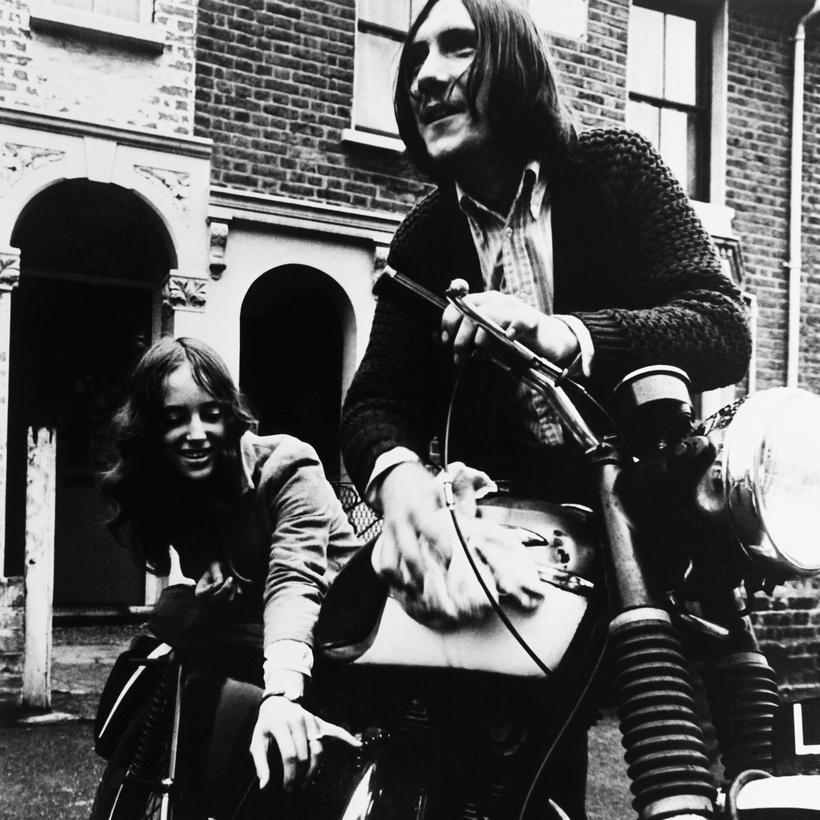On November 2, 1970, Princess Anne attended a premiere at the Cameo-Poly Cinema, in London’s West End. It would be surprising if she returned to Buckingham Palace thinking about the film she’d seen—an adaptation of Three Sisters—rather than her heated reception from the Cockney members of the Beaumont Youth Club of Leyton, East London.
The kids were outraged that Laurence Olivier’s Chekhov film had ousted a movie they cared about—Bronco Bullfrog, directed by 25-year-old Barney Platts-Mills—from the Cameo-Poly after just an 18-day run.

Whether as many as 200 teenagers gathered to heckle Anne, as legend has it, is doubtful, Roy Haywood, one of Bronco Bullfrog’s amateur actors who was present on that night in 1970, tells me today. The protesters “bowled into the foyer, and when the police were called, they exited to different stations,” Haywood recalls. Photos of the smiling 20-year-old princess being greeted by Olivier inside the theater reveal that her sparkly white dress was unstained by the tomatoes allegedly thrown at her.
Later that month, Anne arrived at the ABC Mile End cinema, in Stepney, to shake hands with Bronco Bullfrog’s cast and watch the film. “She was very down to earth,” Haywood says.
A Cult Film in the Making
Filmed mostly in Stratford, an East End district where bomb sites and prefabs were hangovers from the Blitz, the cult movie is a nonchalant working-class drama with unpolished acting and immense heart. Restored and partially subtitled (for Cockney nonspeakers), it’s revived this weekend at Manhattan’s Film Forum.
The protagonist, Del (Del Walker), a taciturn 17-year-old apprentice welder, is more mature than Haywood’s Roy and their fellow proto-“suedehead” mates (played by Chris Shepherd and Geoffrey Wincott). But, similarly poor, he helps them rob a restaurant and a railroad goods wagon.

Del’s dead-end existence changes after he asks out 15-year-old schoolgirl Irene (Anne Gooding, whom Platts-Mills had found working in a supermarket). Their Romeo-and-Juliet romance, shocking these days for its courtliness, is opposed by Del’s dad and Irene’s mom, so they flee to the countryside on Roy’s motorbike. Thatcher-era films such as Ken Loach’s Looks and Smiles, Mike Leigh’s Meantime, and Alan Clarke’s Made in Britain shared Bronco Bullfrog’s authenticity and empathy for British youths facing bleak futures. The mod classic Quadrophenia is indebted to it.
The railroad-wagon robbery is led by juvenile-detention escapee Jo, nicknamed “Bronco Bullfrog” (whose real-life antecedent, Johnny Lane, earned his nickname from his “bulging eyes” and the TV Western hero Bronco Lane, Haywood says). He was played by Sam Shepherd, who was reportedly seized by constables when he tried to kiss Princess Anne’s hand at the premiere.
The film “gives you an insight into what life was like in East London all those years ago,” Haywood says. “What was there for us? Nothing, except kicking a football around a car park and getting into trouble. And we were no angels. If it wasn’t for Joan Littlewood, some of us would have ended up in prison.”

The innovative stage director had moved her company to Stratford’s Theatre Royal. Haywood and his school friends harassed its patrons and charged them to mind their cars. “We were a bit boisterous, so Joan got us clearing bomb sites,” Haywood says. “One day it was raining so she got us in the theater doing improvisations.”
She also put them in an acting class. Haywood, Walker, and Shepherd were filmed playing themselves in the 1968 short “Everybody’s an Actor, Shakespeare Said,” directed by Platts-Mills and photographed by Adam Barker-Mill at a house in Sandwich, Kent.
Platts-Mills befriended the boys, gave them the keys to his apartment (“where we discovered his waccy-baccy,” Haywood reminisces), and had them crew his yacht on the Solent during Cowes Week.
“One day, I said to him, ‘Why don’t you make a proper film with us?,’” Haywood says. “He went, ‘You come up with a story line, and we’ll see what we can do.’ We came up with Bronco Bullfrog. When Barney gave us a script, we threw it back at him and said, ‘That’s not us. We don’t talk like that.’ He said, ‘O.K., do what you do with Joan—improvise.’ He wrote another script after that, but we didn’t use it all the time. We ad-libbed.”
“Barney admired the Italian neo-realists, and he had an ambition to make low-budget films about real people, using non-actors, which was what the Italians had done,” recalls Barker-Mill, who shot Bronco Bullfrog in crisp black and white. Now 82, Barker-Mill praises Platts-Mills, whose father was a prominent Q.C. and Labour Party politician, for his ability “to relate to the boys and joke with them.”

“Del Walker had a girlfriend, and they had nowhere to go, so they stayed at my Notting Hill flat one night, which was catalytic in terms of the story,” Barker-Mill adds; the film’s Del and Irene wind up staying with Bronco. “There was a big advantage in getting to know the kids. Film is such a personal thing that it takes time before you can see people through a camera and understand their characters. It’s like making a friend.”
Where Three Sisters had a William Walton score, Bronco’s yearning, bluesy songs and incidental music were provided by emergent art rockers Audience. Singer Howard Werth, himself an East Ender who later auditioned to replace Jim Morrison in the Doors, admits he and his bandmates found the dialogue “funny and awkward when we first saw it. But looking back on it with the aid of mature understanding, we realized how unusual the film was and how it helped a lot of other filmmakers.”

Audience didn’t record further soundtracks. “We were offered a dodgy Swedish porn film, but we made our excuses and left,” Werth says. “We thought that probably wouldn’t have helped us. Who knows? It might have done.”
None of the Bronco Bullfrog kids acted again, but Platts-Mills stayed in touch with them as much as possible. Haywood says the director invited him to pay a visit last year, shortly before he died. “He was a diamond of a man.”
Bronco Bullfrog is showing at Film Forum, in New York, through March 31
Graham Fuller is a New York–based film critic

